If you’ve received a cell phone ticket California, you’re likely wondering about the laws, fines, and what you can do next. In this article, we’ll break down California’s cell phone regulations, the penalties for violations, and potential defenses you can use.
Key Takeaways
- California’s cell phone laws mandate hands-free use for all drivers and prohibit texting while driving, with stricter rules for drivers under 18.
- Penalties for cell phone violations can result in fines exceeding $162 for first offenses and over $285 for subsequent offenses, with the potential for points on the driving record for repeat violations.
- Defenses against cell phone tickets include proving hands-free usage, arguing necessity in emergencies, and hiring an attorney to enhance chances of contesting the ticket.
Overview of California’s Cell Phone Laws
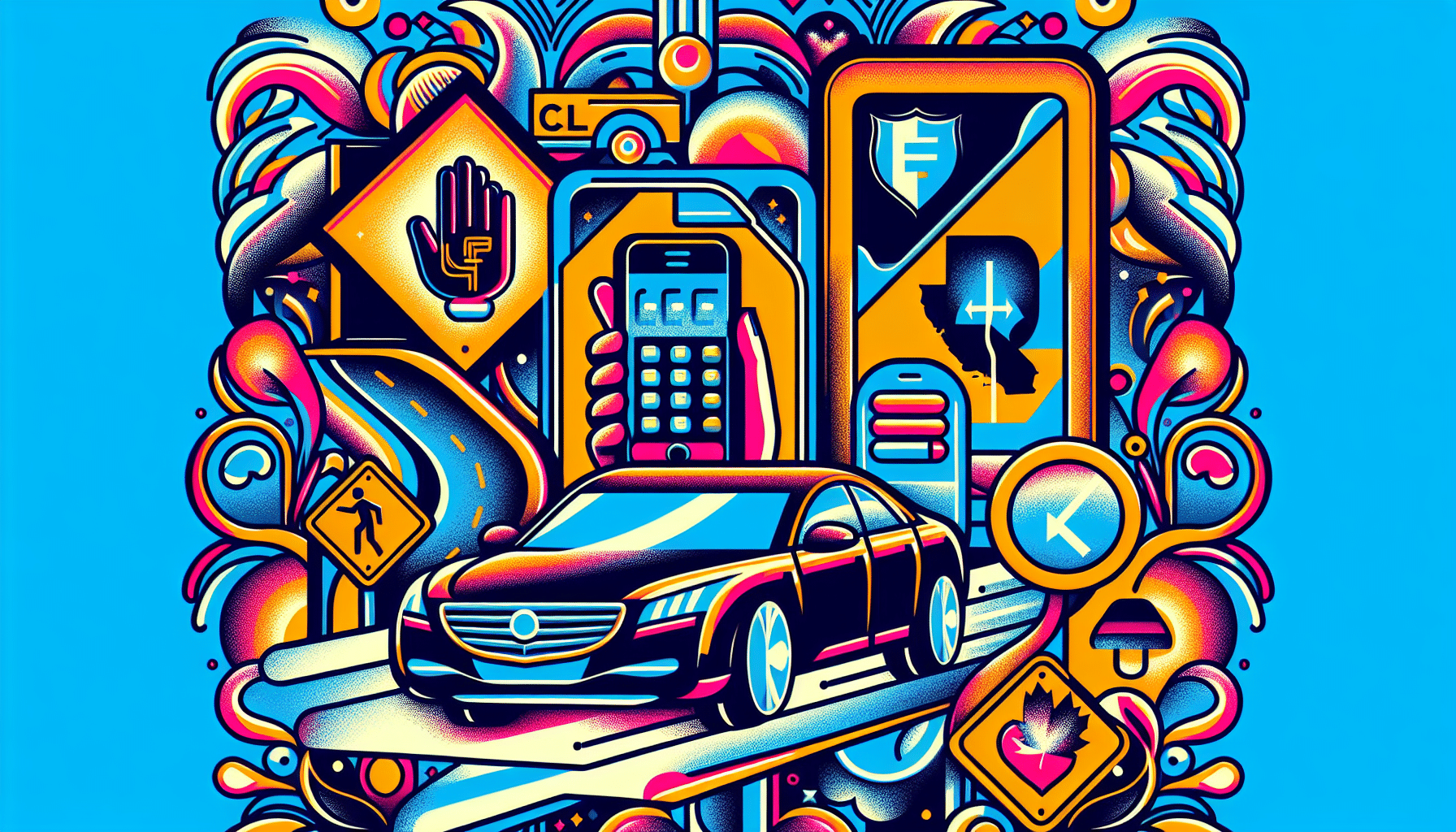
California’s approach to regulating cell phone use while driving is both strict and comprehensive. The state’s hands-free law, enacted in 2008, prohibits all drivers from using handheld cell phones while behind the wheel. This law aims to reduce distracted driving accidents, which are a significant cause of road fatalities and injuries.
In addition to the hands-free requirement, California law also bans texting while driving. This law was established in 2009. It prohibits any reading, writing, or sending of text messages while driving a vehicle. The rationale is clear: texting creates visual, cognitive, and physical distractions that can lead to dangerous situations on the road.
Drivers under 18 face even stricter regulations. They are completely banned from using cell phones, even if the device is hands-free. For drivers over 18, hands-free devices like Bluetooth, earpieces, and speakerphone use are allowed, provided they don’t cover both ears.
Moreover, drivers can only interact with their mounted devices by swiping or tapping the screen once. These measures collectively aim to minimize distractions and enhance road safety.
Penalties for Cell Phone Violations
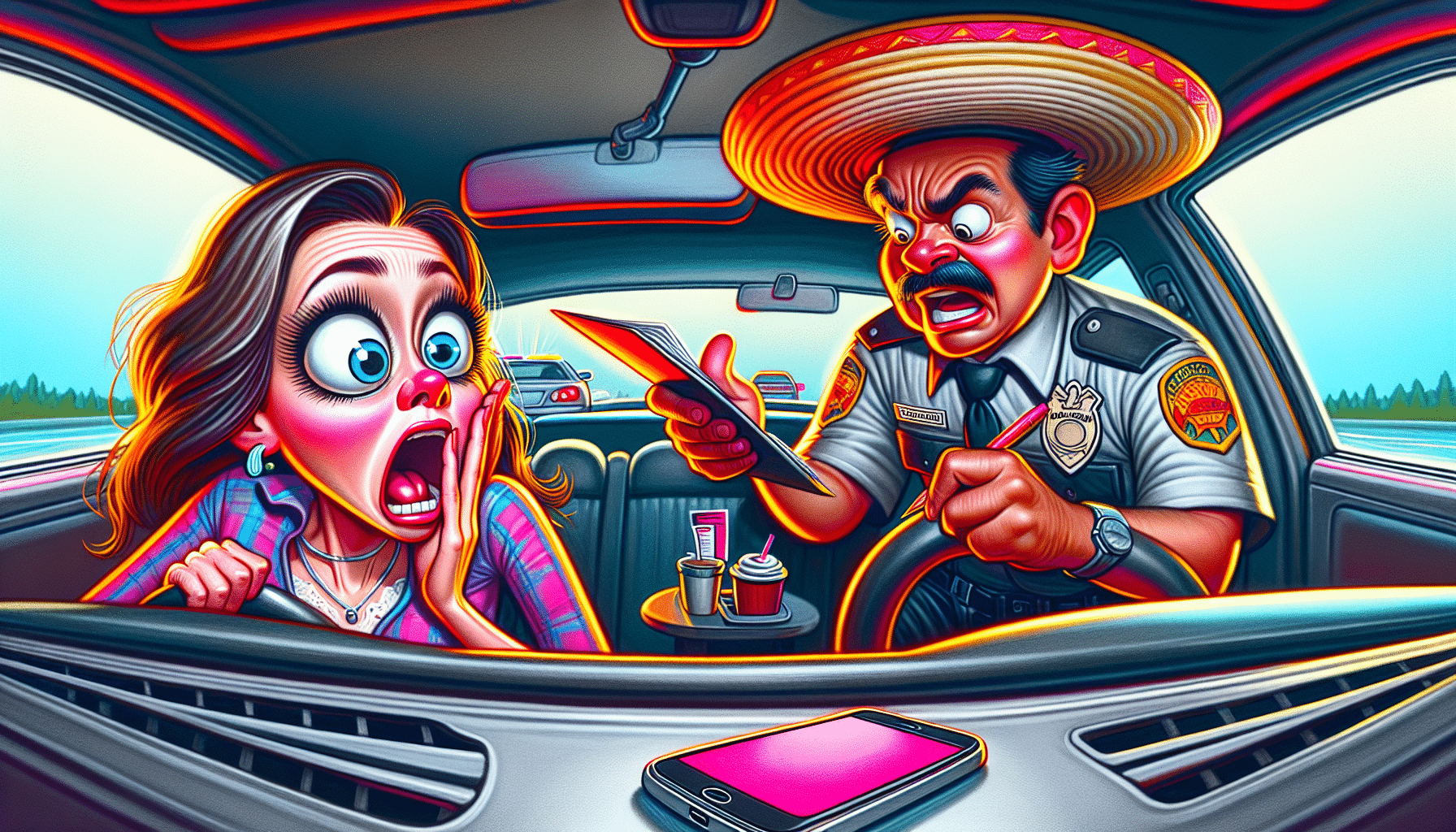
The consequences of violating California’s cell phone laws can be severe, reflecting the state’s commitment to curbing distracted driving. A phone ticket in California can result in significant financial penalties and potential impacts on your driving record.
Penalties vary depending on whether it’s your first offense or a subsequent one. For first-time offenders, the base fine might seem manageable, but additional penalty assessments can quickly inflate the cost. Repeat offenders face even stiffer penalties, with fines escalating significantly. Let’s break down these penalties in more detail.
First Offense Penalties
The base fine for a first cell phone violation is $20. This applies to the initial offense. However, don’t be fooled by this seemingly low amount. When various fees and assessments are added, the total cost can reach at least $162. This includes court fees, state assessments, and other charges, making a first offense quite costly.
The financial impact is just one aspect. Although a first-time distracted driving violation doesn’t add points to your driving record, it can still lead to increased insurance premiums. Insurers often view any traffic violation as a risk factor, potentially raising your rates even if no points are assigned.
Subsequent Offense Penalties
If you’re caught violating cell phone laws again, the penalties become more severe. The base fine for a second and subsequent offense is $50. However, with additional penalty assessments, the total cost can exceed $285. This substantial increase is designed to deter repeat offenders and emphasize the importance of adhering to the law.
Repeat violations within a 36-month period also result in a point being added to your driving record. Accumulating points can lead to more serious consequences, such as increased insurance premiums, mandatory traffic school, or even suspension of your driver’s license.
Exceptions to California’s Cell Phone Laws
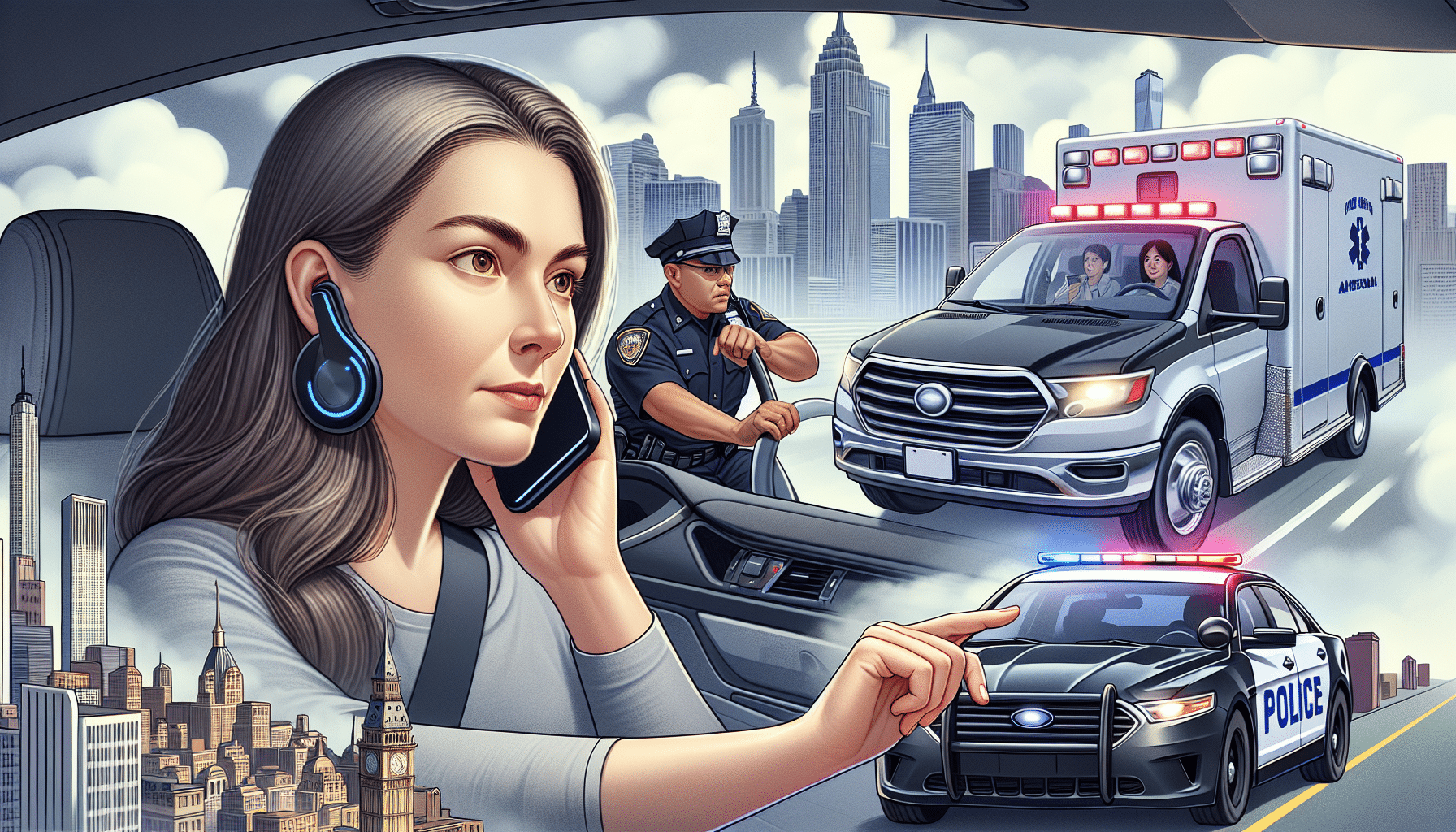
While California’s cell phone laws are stringent, there are notable exceptions. For instance, using a handheld cell phone is permitted for emergency calls to law enforcement, fire departments, or medical services. This exception acknowledges that in critical situations, the need to make a call outweighs the potential distraction. Additionally, understanding California cell phone laws and the cell phone law can help drivers avoid penalties.
Authorized emergency vehicle operators and school or transit bus drivers can also use handheld phones for work-related emergencies. Additionally, drivers can operate a mounted GPS if it requires only a single tap or swipe on an electronic wireless communications device.
These exceptions ensure that essential communications and navigational needs are met without compromising safety.
Texting While Driving in California
Texting while driving is explicitly illegal in California under the California Vehicle Code §23123.5. This law is part of the broader effort to combat distracted driving, recognizing that texting poses a unique danger by diverting a driver’s attention from the road. The law prohibits reading or writing while driving. It also bans sending text messages under those circumstances. This includes not just traditional texting but also any other form of electronic messaging.
The penalties for texting while driving are steep; fines for a first citation can exceed $162, and for subsequent offenses, the total cost can soar to over $285 due to additional penalty assessments.
Texting while driving creates multiple types of distractions: visual (taking your eyes off the road), cognitive (taking your mind off driving), and physical (taking your hands off the wheel). These distractions significantly increase the risk of accidents, making strict enforcement of this law a critical safety measure.
Legal Defenses for Cell Phone Tickets
If you receive a cell phone ticket, all hope is not lost. There are several legal defenses that can be employed to contest the violation. Common strategies include:
- Demonstrating that you were using a hands-free device
- Arguing that the phone use was necessary to prevent significant danger
- Claiming that the officer mistook another passenger’s phone use for yours
Hiring an attorney can be particularly beneficial. An attorney can assist in gathering evidence such as phone records and provide expert representation, significantly enhancing your chances of contesting the ticket successfully.
Common Legal Defenses
One of the most common legal defenses is the necessity defense, where you argue that you had to use your phone to prevent significant danger to yourself or others. Another strategy is to challenge the lack of evidence, contending that the officer did not have clear grounds to issue the ticket.
Using a cell phone for authorized emergency purposes, such as making an emergency call for help, is also a valid legal defense against a cell phone ticket. These defenses can be effective, especially when supported by strong evidence.
Hiring an Attorney
Consulting an attorney is advisable if you are accused of a cell phone violation. An attorney can provide expert knowledge of traffic laws and represent you in court, potentially reducing your penalties.
An experienced attorney can also gather necessary evidence, such as phone records, and challenge the prosecution’s evidence, improving your chances of successfully contesting the ticket.
Impact of Cell Phone Tickets on Driving Records
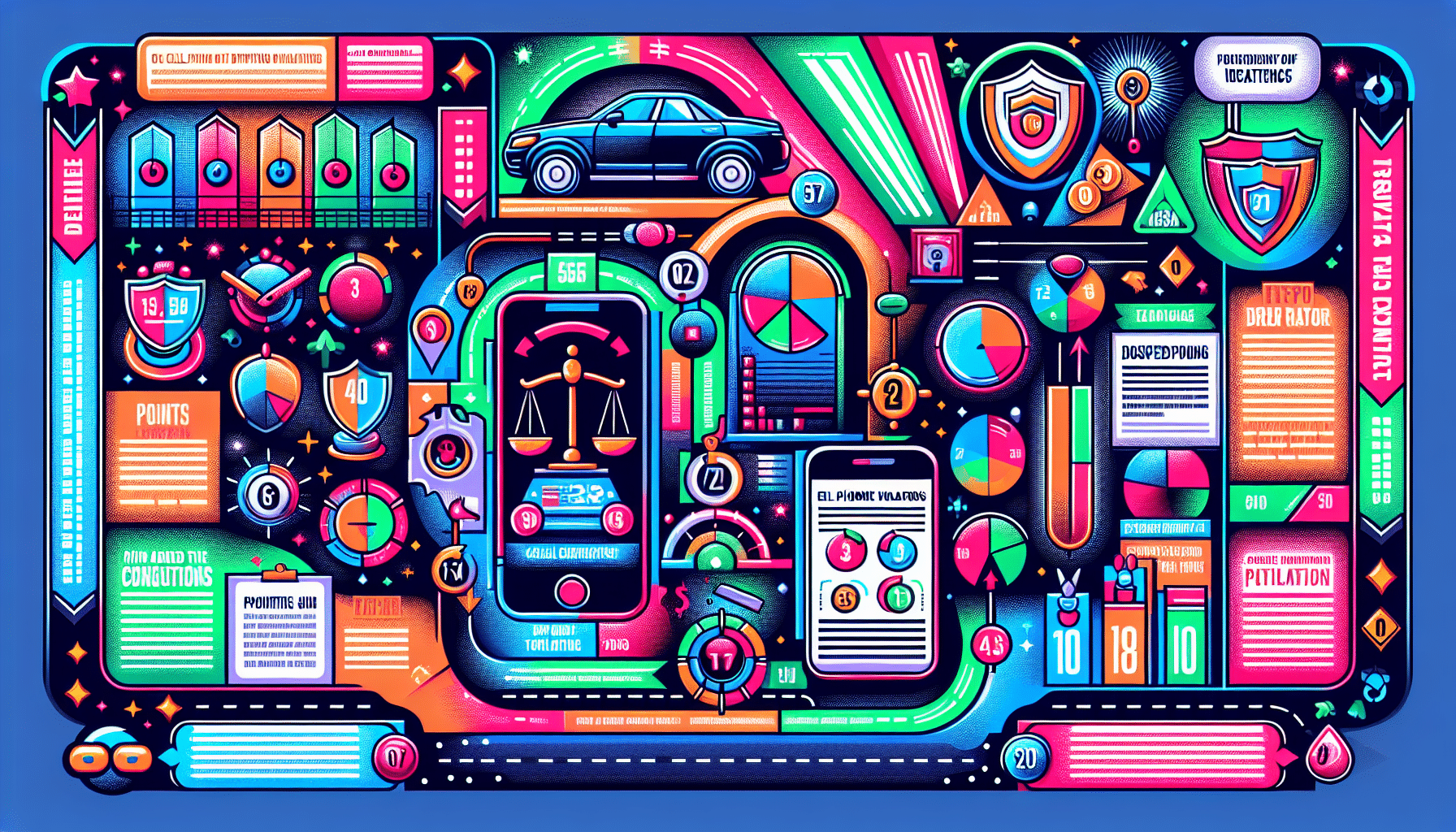
A cell phone ticket can have significant implications for your driving record. While a single ticket doesn’t add points to your record, if you receive another cell phone or distracted driving violation within 36 months, one point will be added. Accumulating points can lead to increased insurance rates and other penalties.
Even without points, insurance companies may raise your rates following a cell phone violation, viewing any traffic infraction as a risk factor. Therefore, avoiding these tickets is crucial to maintaining a clean driving record and keeping insurance costs down.
Avoiding Cell Phone Tickets
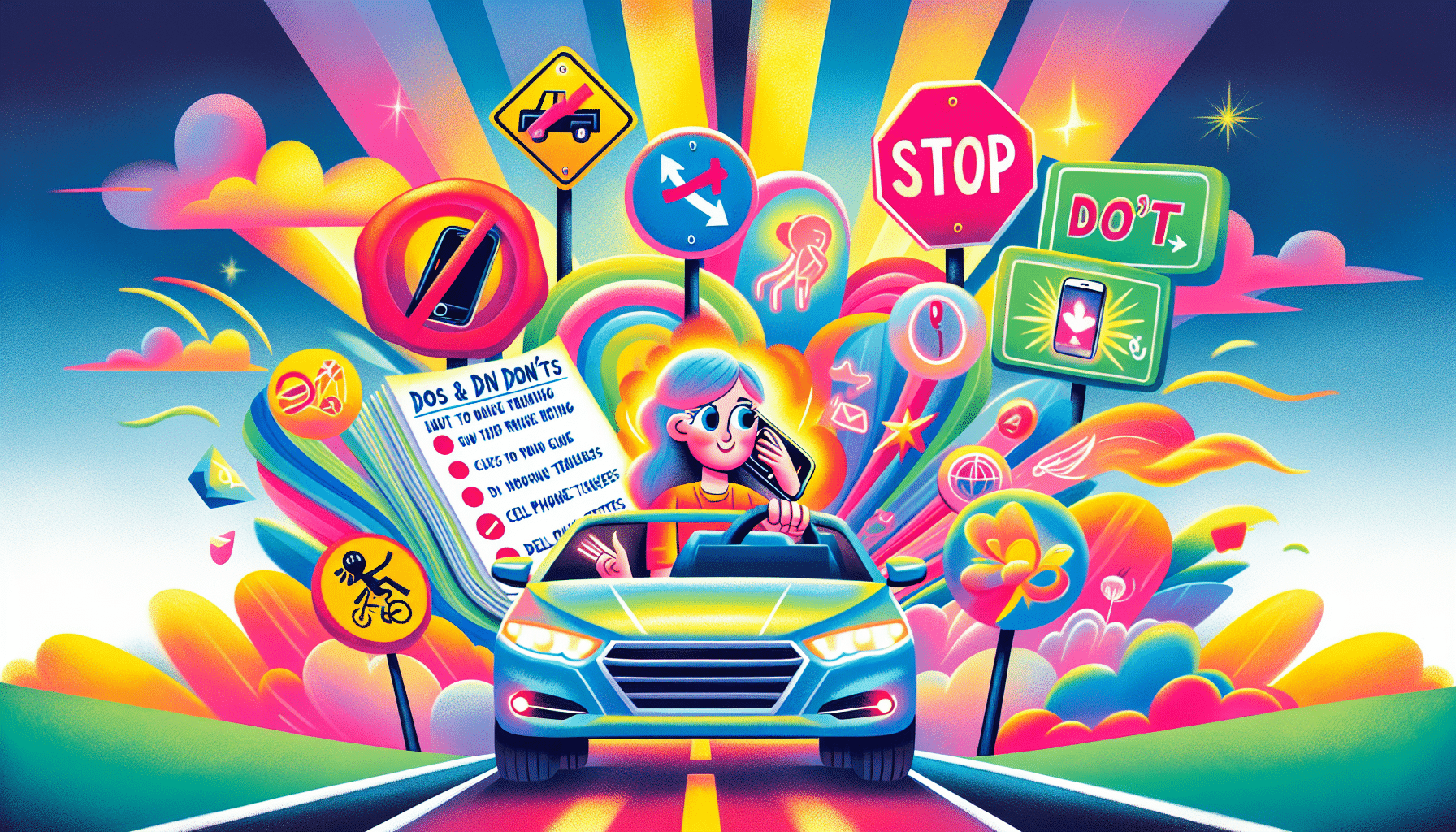
Avoiding cell phone tickets is not just about avoiding fines; it’s about ensuring road safety. The ‘Put Your Phone Down. Just Drive’ campaign encourages drivers to stay focused on the road and avoid distractions. Practical tips include using hands-free devices, mounting your phone for GPS use, and setting your phone to “Do Not Disturb” mode while driving.
Remember, distracted driving significantly increases the risk of accidents. Staying disciplined and adhering to California’s cell phone laws can help you avoid tickets and contribute to safer roads.
Related Traffic Violations
Distracted driving encompasses more than just cell phone use. Activities like eating, grooming, or even adjusting the radio can distract drivers and lead to violations. California traffic laws penalize these behaviors as well, emphasizing the importance of focused driving.
Failing to stop at a red signal or making illegal turns at red lights are other common violations. These actions, often resulting from distracted driving, can have severe consequences, including fines and points on your driving record.
Summary
Understanding California’s cell phone laws is essential for all drivers. The state’s strict regulations and significant penalties underscore the importance of safe driving practices. By adhering to these laws, you can avoid costly fines, maintain a clean driving record, and contribute to overall road safety.
Stay informed, use hands-free devices, and always prioritize safety over convenience. Together, we can reduce distracted driving accidents and make California’s roads safer for everyone.
Frequently Asked Questions
What is the base fine for a first cell phone violation in California?** **?
The base fine for a first cell phone violation in California is $20; however, with additional assessments, you could end up paying at least $162.
Are there any exceptions to California’s cell phone laws?** **?
Yes, exceptions to California’s cell phone laws include making emergency calls to law enforcement, fire, or medical services, as well as for authorized emergency vehicle operators.
Can texting while driving add points to my driving record?** **?
Yes, texting while driving can add points to your driving record, especially if you receive a violation within 36 months of a prior offense. It’s crucial to prioritize safety and avoid distractions while driving.
What are some common legal defenses against a cell phone ticket?** **?
A strong defense against a cell phone ticket can include demonstrating necessity, lack of evidence, or that the phone was used for authorized emergency purposes. These arguments can effectively challenge the validity of the ticket.
Should I hire an attorney for a cell phone ticket?** **?
Hiring an attorney for a cell phone ticket is advisable, as they can offer expert representation and may help reduce penalties.




